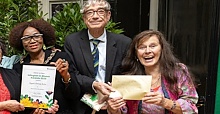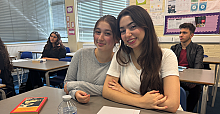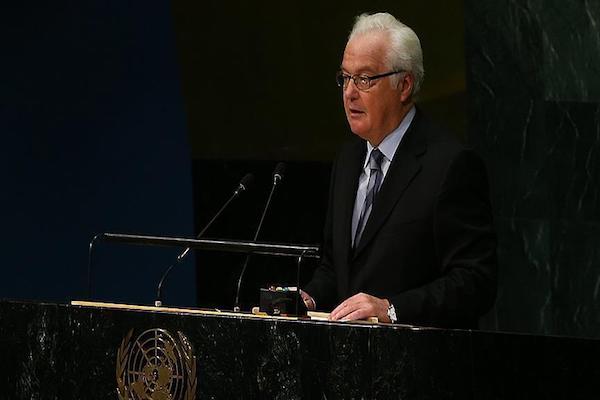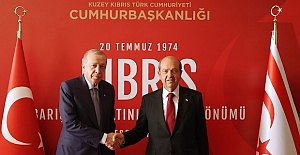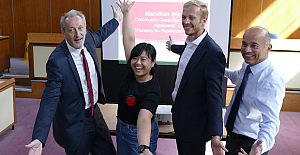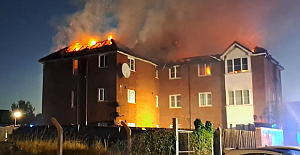Guterres dubbed Churkin as an “outstanding diplomat”, in a statement.
Churkin died "suddenly in New York on February 20, a day ahead of his 65th birthday”, according to a statement issued by the Russian foreign ministry
“The outstanding Russian diplomat died in harness," it said. "We offer sincere condolences to the family of Vitaly Ivanovich Churkin."
Russian President Vladimir Putin and Prime Minister Dmitry Medvedev also expressed condolences to the Churkin family and praised the diplomat for his service.
A cause of death has yet to be determined but an unnamed U.S. official told The Associated Press Churkin died of an apparent heart attack.
Churkin served as UN ambassador since April 8, 2006. His veto as a permanent member of the Security Council prevented action on the Syrian and Ukrainian crises on numerous occasions.
News of Churkin's death hit the UN headquarters during a session and was met with shock.
A UN official who announced the news to the session said: "He was a dear colleague of all of us, a deeply committed diplomat of his country and one of the finest people we have known."
U.S. ambassador to UN, Nikki Haley said she and Churkin did not “always see things the same way, but he unquestionably advocated his country's positions with great skill”.
Former U.S. ambassador to UN, Samantha Power, who often argued against and criticized Churkin on critical issues, tweeted she was "devastated" by his the death of the "diplomatic maestro" who was a "deeply caring man" who did all he could to bridge differences between Washington and Moscow.
“Absolutely devastated to hear that my friend and colleague Vitaly Churkin has died. A diplomatic giant and wonderful character," said U.K.'s UN representative Matthew Rycroft via Twitter.


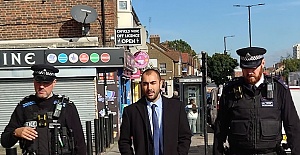 Enfield Labour welcomes new court order to stop antisocial behaviour in Edmonton Green
Enfield Labour welcomes new court order to stop antisocial behaviour in Edmonton Green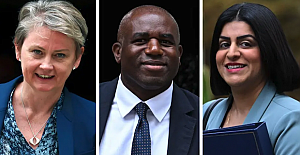 David Lammy arrives in Downing Street after becoming deputy prime minister
David Lammy arrives in Downing Street after becoming deputy prime minister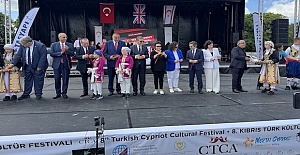 CTCA UK Condemns the Political Forcing Out of Afzal Khan MP for Engaging with Turkish Cypriots
CTCA UK Condemns the Political Forcing Out of Afzal Khan MP for Engaging with Turkish Cypriots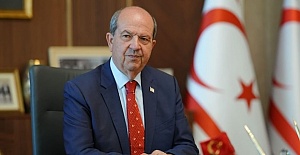 Tatar: “Reaction to MP’s TRNC visit is yet another stark example of the Greek Cypriot leadership’s primitive and domineering mentality”
Tatar: “Reaction to MP’s TRNC visit is yet another stark example of the Greek Cypriot leadership’s primitive and domineering mentality”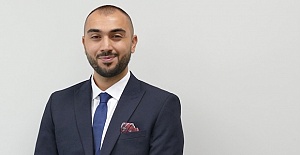 Enfield Labour Calls for Public Feedback on Crime and Safety Concerns
Enfield Labour Calls for Public Feedback on Crime and Safety Concerns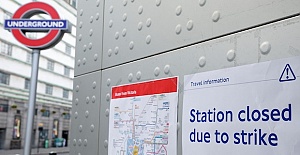 Important Travel Updates: London Underground and DLR Strike Action
Important Travel Updates: London Underground and DLR Strike Action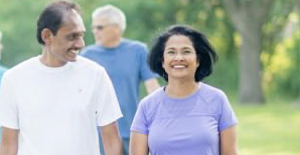 Team Enfield ranks fifteenth the in London Youth Games
Team Enfield ranks fifteenth the in London Youth Games Parking enforcement boosted with more officers on patrol in Enfield
Parking enforcement boosted with more officers on patrol in Enfield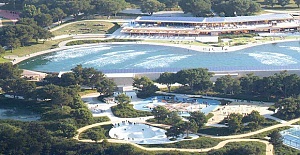 Enfield Council has approved plans for Surf London
Enfield Council has approved plans for Surf London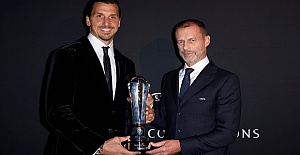 Zlatan Ibrahimović receives UEFA President’s Award
Zlatan Ibrahimović receives UEFA President’s Award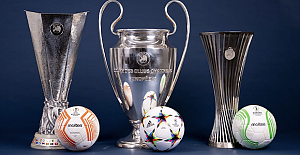 UEFA Europa League and UEFA Conference League draws to be combined into one single show
UEFA Europa League and UEFA Conference League draws to be combined into one single show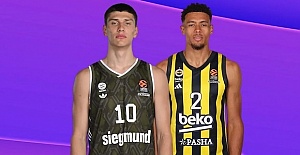 EuroLeague schedule for 2025-26 season announced
EuroLeague schedule for 2025-26 season announced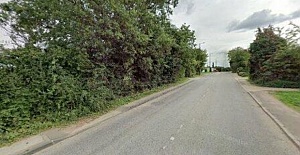 Enfield’s Crews Hill and Chase Park shortlisted for potential New Town
Enfield’s Crews Hill and Chase Park shortlisted for potential New Town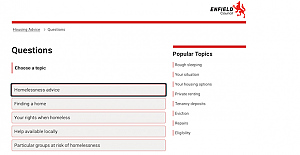 Important milestone achieved with no hotel placements for temporary accommodation
Important milestone achieved with no hotel placements for temporary accommodation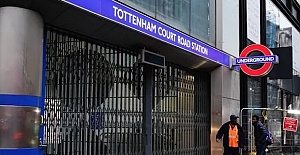 London tube strike shuts down services as TfL website crashes
London tube strike shuts down services as TfL website crashes HMRC TARGETS ERRORS IN MARGINAL RELIEF CLAIMS
HMRC TARGETS ERRORS IN MARGINAL RELIEF CLAIMS

